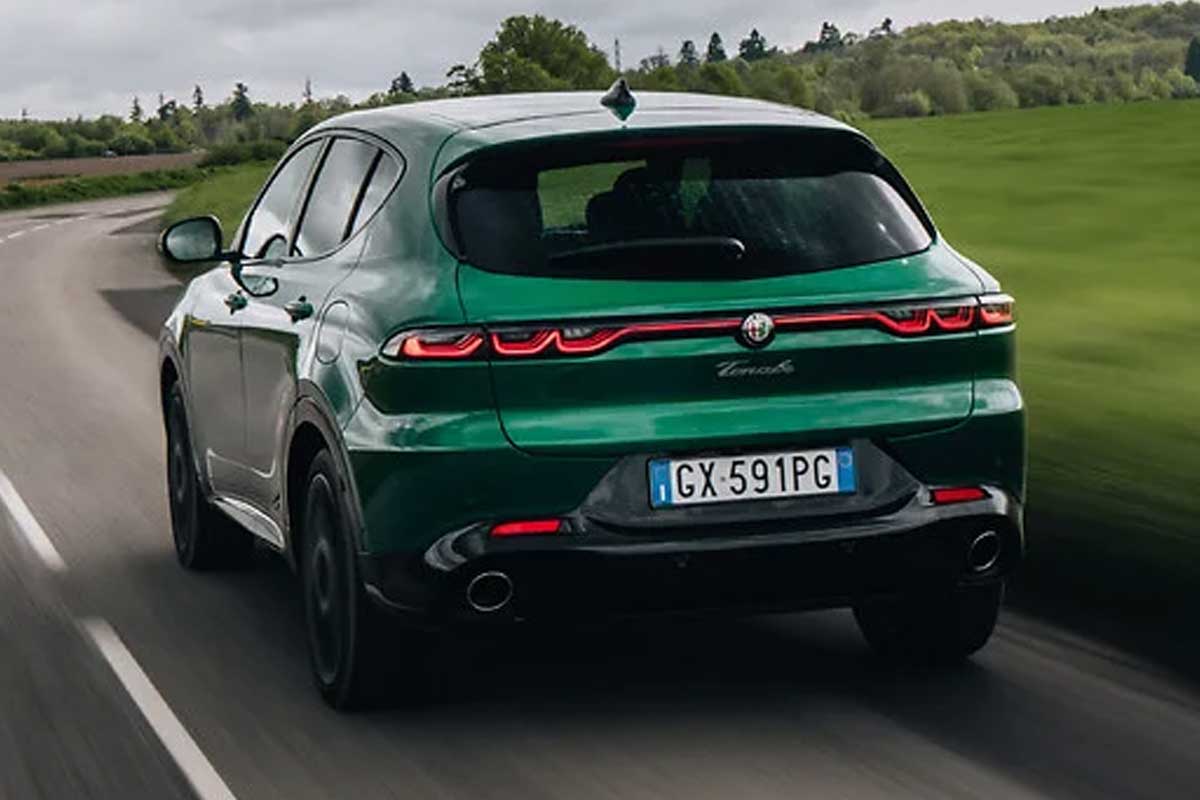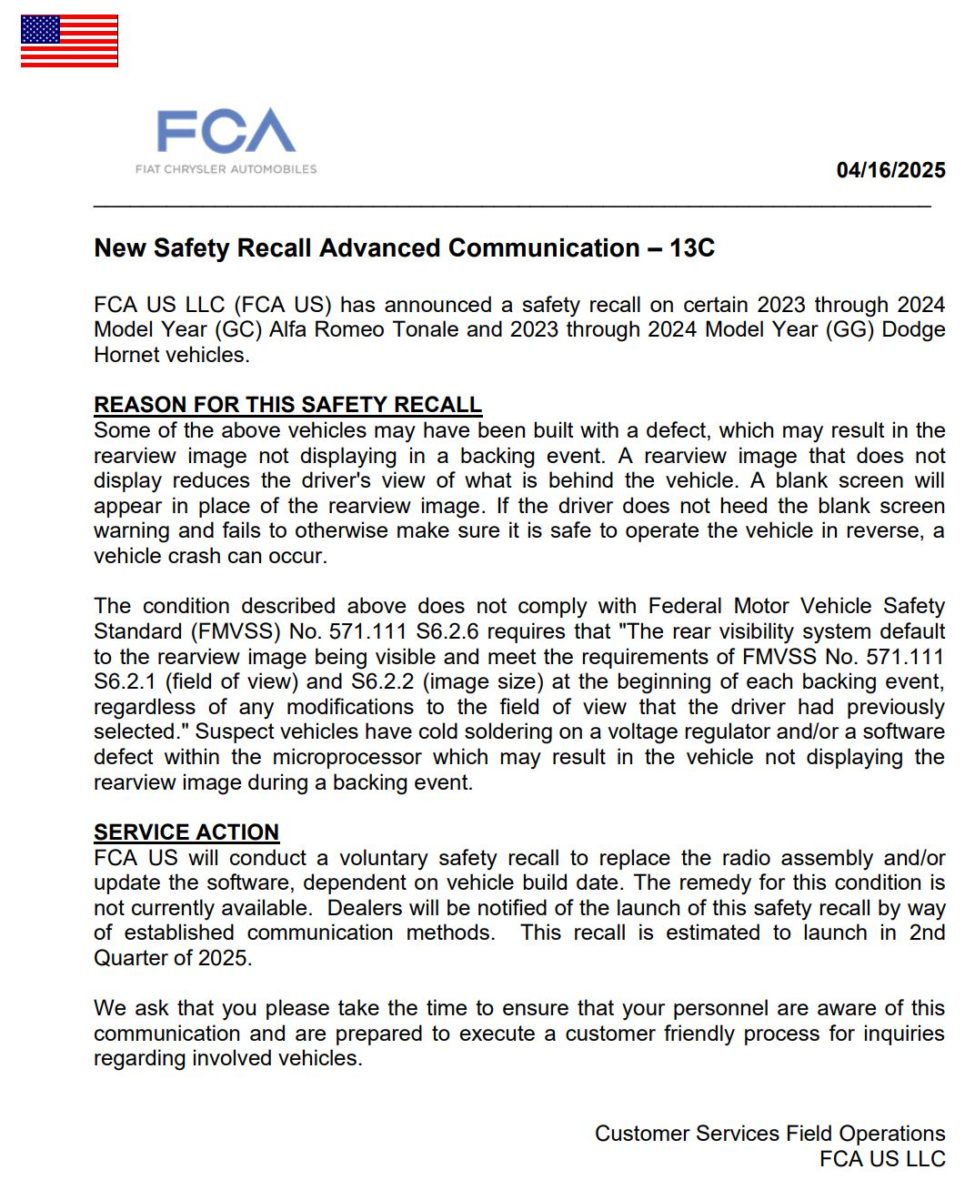
One recall follows another Alfa Romeo in the United States. In less than six months, no less than three major recall campaigns have been launched by Stellantis on the North American market. Brake problems, the risk of disconnection, and now the failure of the rearview camera to display... The rigor of the American authorities, in particular the NHTSAThis contrasts with the relatively low profile of such recalls in Europe.
Third recall in six months: almost 50,000 vehicles affected
On April 15, 2025, NHTSA issued a new recall (no. 25V246000) for 48,494 vehicles, including 8,122 Alfa Romeo Tonales and over 40,000 Dodge Hornets from the years 2023 to 2025. At issue: the rearview camera display, which may not function when the driver engages reverse gear. This malfunction, linked to a welding defect or software bug, contravenes FMVSS 111 requirements on rearward visibility.
The solution? A software update or, if necessary, the replacement of the entire system at the dealership, entirely handled by Stellantis.
A rich history
This recall comes against an already familiar backdrop for the Italian brand. November 2024, over 40,000 Alfa Romeo Tonale and Dodge Hornet vehicleshad been recalled due to a risk of brake pedal collapse. A structural weakness requiring the addition of a bolt to avoid the worst.
Barely a month later, at the end of December 2024, another alert. This time, the Giulia and Stelvio models (2019-2020 vintages) were affected by a brake pedal to brake booster connector incorrectly mountedwith risk of disconnection. The result: over 2,000 vehicles recalled. Two campaigns in two months, followed today by a third.

Why so little response in Europe?
While the figures are precise on the American side, the European impact remains unclear. As a reminder, in November 2024, the Tonale recall affected 20,987 vehicles outside North America, including 2,758 in France. But for the two subsequent recalls, no European communication has yet been published.
Could more flexible European standards explain this difference in treatment? While the NHTSA imposes strict standards and systematic publication, Europe seems to give manufacturers more leeway when it comes to managing recalls.